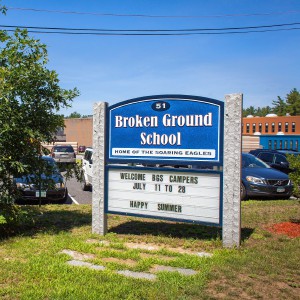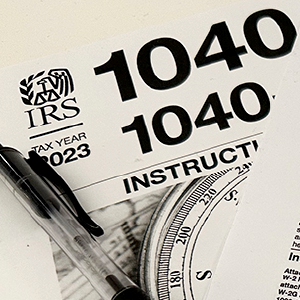Department of Education’s new literacy campaign focuses on teacher training and parent involvement
| Published: 03-01-2023 4:25 PM |
A new literacy campaign launched by the New Hampshire Department of Education aims to improve reading proficiency among children by training teachers and encouraging parent involvement.
The initiative, which coincides with National Reading Month, has three parts: incorporating the science of reading into teacher prep programs, offering free training courses through an online platform and also encouraging families to read at home.
“Strong literacy skills can empower children while also filling in the gaps across all subjects and academic areas,” Education Commissioner Frank Edelblut said at a press conference Wednesday. “When children learn to read, they will inevitably read to learn. The more children know about language and literacy before they begin kindergarten and first grade, the better equipped they are to succeed in literacy and beyond.”
Edelblut said the purpose behind the campaign is to improve reading competency among New Hampshire kids, as student struggles became more apparent during the pandemic. Although the Granite State ranks near the top nationally, student assessment results showed 56% of students were proficient in reading in 2019 compared to 52% in 2021.
“It is a problem that I think has been in existence, but it has become very obvious to us as a result, primarily, of our assessment results after COVID,” Edelblut said. “This is really in response to that. Maybe we're not meeting that need. So we looked closely at it.”
Last August, the Department announced a partnership with Lexia Learning Systems, a Massachusetts company, to provide New Hampshire educators, caregivers and other people who work with kids access to Lexia’s LETRS (Language Essentials for Teachers of Reading and Spelling) suite of professional learning programs about the science of reading. The program teaches different ways to approach reading and writing instruction – phonological awareness, phonics, fluency, vocabulary, comprehension and written language.
The three LETRS courses offered in New Hampshire include an 18-month program for teachers, an 18-week course for early childhood educators, and an 18-week course for educators seeking to create structures in their schools to promote literacy growth.
Danielle Catabia is a reading, writing and learning disability specialist in the Windham School District, who spent part of her career overseeing literacy initiative training for Nashua teachers. As part of a leadership project, she created a cohort to support teachers who are taking the LETRS course, and they meet monthly to discuss their learning, and she works with them in their classrooms.
Article continues after...
Yesterday's Most Read Articles
 Steeplegate project to reopen to public comment as developer seeks to reduce required parking
Steeplegate project to reopen to public comment as developer seeks to reduce required parking
 A turbulent 50-year history: Inside the rise and fall of a tiny Catholic college in Warner
A turbulent 50-year history: Inside the rise and fall of a tiny Catholic college in Warner
 Students and staff welcome the opening of new Allenstown K-8 school
Students and staff welcome the opening of new Allenstown K-8 school
 High schools: Friday and Saturday results
High schools: Friday and Saturday results
 Hopkinton chocolatier transforms chocolates into works of art
Hopkinton chocolatier transforms chocolates into works of art
 School Board to vote on new Broken Ground principal nominee
School Board to vote on new Broken Ground principal nominee
Catabia says the way New Hampshire schools teach reading is not uniform across districts, and neither are the college programs that teach educators how to teach reading.
“Teaching educators how to teach reading needs to begin early to be embedded throughout teacher preparation programs,” Catabia said. “Our children deserve highly trained competent educators who are ready to support students with this very long process. We also need to continue to support educators throughout their careers with their read professional development, continued training and resources. Educators need to feel empowered to make the difficult task of learning to read fun and engaging for the students in front of them.”
Edelblut said his department is engaged in an ongoing project to re-examine the state’s rules for college-level educator prep programs.
“We're looking at every one of these educator prep programs to figure out what it is they're doing,” Edelblut said. “The first phase of that project that we've been working through is looking at our rules as a state around the preparation programs and then bringing that to the programs, saying, ‘what does this look like relative to your programming that you're offering students? Is it equipping teachers to be successful, or not?’”
Another major aspect of the department’s campaign is encouraging adults – including parents and caregivers – to read with kids outside of school as much as possible. Kathleen McCaffery, a Dept. of Education English Language Arts consultant, says reading with children every day is important, and recommends parents point to the words as they read, which helps to demonstrate the direction of reading and to match the words with sounds.
Catabia said its also helpful for teachers if parents and caregivers take a Lexia LETRS course too.
“I work with struggling readers all day long, but the parents are able to take this course too,” Catabia said. “So when parents are sitting with me saying, ‘I don't understand how can I help my child at home,’ it's very easy for me to direct them.”
A five-part video series launched by the Department this month highlights activities parents or caregivers can do with kids outside of school that help their skill-building. Examples include naming everyday objects like vegetables at the grocery store, discussing the sounds words make, and using “serve and return” interactions to build vocabulary.
“Reading is like a sport. In order to love a sport and play well, young athletes need strong training and extensive practice, as well as parents and caregivers who transport them and cheer them on,” said McCaffery.
For more details on the campaign, visit www.nhlovesreading.org


 Granite Geek: Free government software for taxes – what could go wrong? (Not much, as it turns out)
Granite Geek: Free government software for taxes – what could go wrong? (Not much, as it turns out) To snuff out cancer, NH firefighters seek regular screenings
To snuff out cancer, NH firefighters seek regular screenings New Hampshire jury finds state liable for abuse at youth detention center and awards victim $38M
New Hampshire jury finds state liable for abuse at youth detention center and awards victim $38M Jurors hear closing arguments in landmark case alleging abuse at New Hampshire youth center
Jurors hear closing arguments in landmark case alleging abuse at New Hampshire youth center
